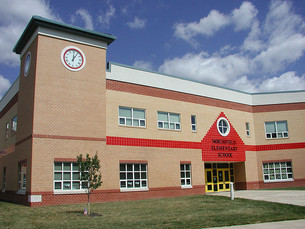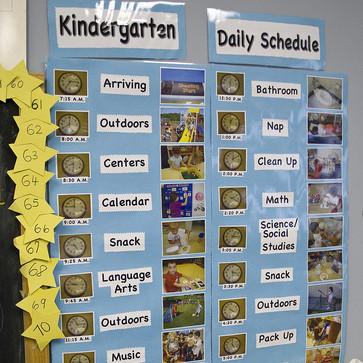Choosing The Right School For Students With Learning Challenges

Parents of students with learning or attention challenges often ask us what kind of school would be best for their child – a public school, a private school for typical learners, or a private “special education” school. The answer, as with so many things, depends upon a number of factors.
Location
Here in New York City and its suburbs there are a number of excellent private schools of all kinds, including a wide variety of schools dedicated to helping students with specific learning issues and/or ADHD. But that is not the case in all parts of the country and many of the families we work with from other areas have very limited options available to them for private special education. Most areas have private schools for typical learners, but many of these are parochial schools which may not be a choice for every family. So, any inquiry about what kind of school would be best for a particular student must begin with looking at the options available. Parents should be aware that students with IEPs (Individual Educational Programs) are entitled to free bus service beyond standard bus limits, but adding a long bus ride at each end of a school day may be too much for younger students. Even older students who attend private schools far from their home area may find that they are limited in their ability to become involved in after-school activities or informal interactions with their classmates.
What about residential schools? Many families are not comfortable with boarding schools, especially for younger children, and with the exception of students with very significant learning or other challenges, a boarding program may not be necessary.
Public schools are required by federal law to offer students in need of special education a “free, appropriate public education” under the Individuals with Disabilities Education Act (IDEA) and even students with attention difficulties who do not otherwise require specialized education are entitled to appropriate accommodations under Section 504, a federal law ensuring access to education.[1] So, families who do not have good local private school options will invariably seek the best education possible in their local public schools.
Level of Need
Many of the students we work with are in need of learning strategies and supports to enable them to overcome learning and attention difficulties. But they also often have significant academic and personal strengths that can help them as they work on their challenges. They may thrive in a competitive and diverse community of learners, such as is available in a public school or typical private school, so long as their school provides the necessary strategies and supports. Other students need intensive, individualized instruction that may not be available in a public school or many private schools. They may have behavioral challenges that would impede their social integration in a public school setting, or may not be acceptable to typical private schools. For these students, a specialized setting – a school whose mission focuses on learning, attention, and/or behavioral challenges – would be a better fit.
There is also the consideration of where your child falls within the student body of a school. Ideally, a student will find peers whose academic and/or attention issues are in a similar range to his. If a student functions at a lower level – academic or behavioral – than her peers, she may not be able to benefit from social interactions in that school setting or may not be able to get the academic support she needs. If your child functions at the highest level in a particular school, he may do better (and have more challenges and opportunities) in a less restrictive environment.
Location
Here in New York City and its suburbs there are a number of excellent private schools of all kinds, including a wide variety of schools dedicated to helping students with specific learning issues and/or ADHD. But that is not the case in all parts of the country and many of the families we work with from other areas have very limited options available to them for private special education. Most areas have private schools for typical learners, but many of these are parochial schools which may not be a choice for every family. So, any inquiry about what kind of school would be best for a particular student must begin with looking at the options available. Parents should be aware that students with IEPs (Individual Educational Programs) are entitled to free bus service beyond standard bus limits, but adding a long bus ride at each end of a school day may be too much for younger students. Even older students who attend private schools far from their home area may find that they are limited in their ability to become involved in after-school activities or informal interactions with their classmates.
What about residential schools? Many families are not comfortable with boarding schools, especially for younger children, and with the exception of students with very significant learning or other challenges, a boarding program may not be necessary.
Public schools are required by federal law to offer students in need of special education a “free, appropriate public education” under the Individuals with Disabilities Education Act (IDEA) and even students with attention difficulties who do not otherwise require specialized education are entitled to appropriate accommodations under Section 504, a federal law ensuring access to education.[1] So, families who do not have good local private school options will invariably seek the best education possible in their local public schools.
Level of Need
Many of the students we work with are in need of learning strategies and supports to enable them to overcome learning and attention difficulties. But they also often have significant academic and personal strengths that can help them as they work on their challenges. They may thrive in a competitive and diverse community of learners, such as is available in a public school or typical private school, so long as their school provides the necessary strategies and supports. Other students need intensive, individualized instruction that may not be available in a public school or many private schools. They may have behavioral challenges that would impede their social integration in a public school setting, or may not be acceptable to typical private schools. For these students, a specialized setting – a school whose mission focuses on learning, attention, and/or behavioral challenges – would be a better fit.
There is also the consideration of where your child falls within the student body of a school. Ideally, a student will find peers whose academic and/or attention issues are in a similar range to his. If a student functions at a lower level – academic or behavioral – than her peers, she may not be able to benefit from social interactions in that school setting or may not be able to get the academic support she needs. If your child functions at the highest level in a particular school, he may do better (and have more challenges and opportunities) in a less restrictive environment.
"There is no one “best” school. There is the right school for a particular child, at a particular point in time."
Finances
Private school is expensive. There is no public funding available for typical private schools or for parochial schools, although students with IEPs may be entitled to receive publicly funded services at such schools, but seldom at the level available in public schools (since such services are funded under a different system and do not need to be identical to what public schools would provide).
For students with IEPs who are enrolled in special education private schools, funding is available two ways. First, students placed by their public school district in “approved” private schools, which meet state standards for curriculum and schedule and which administer state tests and provide eligible students with a state diploma (such as a Regents diploma in New York) attend such schools at no charge. This is part of the Free, Appropriate Public Education guaranteed by the IDEA. Families that unilaterally place students in private special education schools that are not “approved” may seek reimbursement for tuition (often referred to as “Carter funding”) or, in limited cases, may seek to have the tuition paid directly to the private school (called “Connors funding”). These processes require that a legal hearing be commenced and there is no guaranty of payment.
|
Philosophy and Class Size
Other considerations in the decision about what kind of school will be best for a particular child include the family philosophy about private education. We work with some families, particularly in New York City, that would never consider placing their child in a public school. We see other families that deeply believe in public education and, absent special circumstances, want their child to attend a public school. And there are many families that would send their child to a public school but are concerned about class size and resources, especially when a child has special educational needs. When we work with families to help them decide on the best setting for their child with learning and/or attention difficulties, we take all of the issues outlined here into consideration. We also urge them to visit each school they are considering, while it is in session, and to observe those students who will be their child’s classmates in the coming year. There is no one “best” school. There is the right school for a particular child, at a particular point in time. |
[1] Rehabilitation Act of 1973, Pub. L. No. 93-112, §504, 87 Stat. 355 (1973) (codified as amended at 29 U.S.C. §794).
Photos: Top: CC by Kevin Jarrett; Bottom: CC by Woodleywonderworks

